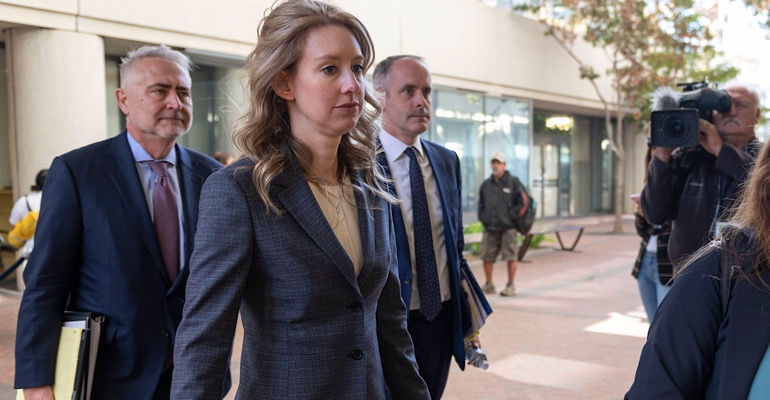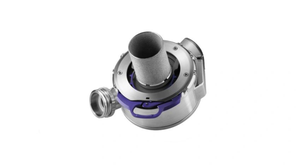A hearing regarding the Theranos founder's second request for a new trial is scheduled for Oct. 3.
September 8, 2022

Elizabeth Holmes is asking for a new trial, claiming that the government "adopted a new narrative" during Ramesh "Sunny" Balwani's trial, which she argues constitutes new evidence. The request follows a request filed earlier this week, which noted that a key witness for the prosecution now has regrets about his role in her conviction.
Holmes, founder and CEO of Theranos, was convicted in January on four charges of defrauding investors and conspiring to defraud investors. Her sentencing is currently scheduled for Oct. 17. Balwani, Holmes' ex-boyfriend and former chief operating officer at Theranos, was convicted in July on all 12 criminal charges against him. His sentencing is scheduled for Nov. 15. The key difference in the outcomes of the two trials is that Holmes was cleared on charges of defrauding patients, while Balwani was found guilty on 10 counts of wire fraud and two counts of conspiracy for defrauding Theranos investors and patients.
Earlier this week, Holmes filed a petition for a new trial based on the reliability of testimony provided by former Theranos lab director Adam Rosendorff. Rosendorff, who testified during Holmes' trial that he repeatedly raised concerns about the accuracy of blood tests being administered to patients during his time at the failed startup, is now expressing regrets about his testimony, according to the 17-page document filed Tuesday.
On Wednesday, Holmes' attorneys filed a second request for a new trial, this time focusing on the way that the government portrayed her relationship with Balwani during his trial.
"During Mr. Balwani's trial, the government adopted a new narrative," the filing reads. "It elicited testimony about the difference in age and experience between Ms. Holmes and Mr. Balwani, and it introduced some of the same text messages that Ms. Holmes had introduced at her trial to exemplify Mr. Balwani's control and influence. From this evidence, the government argued to the jury in closing arguments that Mr. Balwani's 'close relationship with Ms. Holmes would have given him a lot of influence over her,' and that his 'input would carry a lot of weight with her'."
The request goes on to argue that the government's statements in closing arguments during Balwani's trial reflect "a dramatic shift" in its position about the nature of Holmes' relationship with Balwani, and that if the government had tried Balwani first, Holmes could have admitted the government's prior statements at her trial.
"Doing so would have fundamentally changed the government's evidence about the existence of a criminal conspiracy and the role Mr. Balwani played at the company with respect to representations made to potential investors."
That probably would have resulted in an acquittal on the counts of conviction, according to the filing. A hearing on the motion is set for Oct. 3.
President of Theranos clone convicted in $77M testing scheme
In a story that evokes feelings of Theranos déjà vu, another Silicon Valley medtech executive was recently convicted for his role in a scheme to mislead investors, commit healthcare fraud, and pay illegal kickbacks in connection with the submission of more than $77 million in false and fraudulent claims for COVID-19 and allergy testing.
Mark Schena served as the president and chief science officer at Arrayit, and he is married to the company's CEO, Rene Schena. Similar to Theranos, Arrayit claimed its technology could test for virtually any disease using only a few drops of blood. In meetings with investors, Schena and his publicist claimed that he was the "father of microarray technology" and falsely stated that he was on the shortlist for the Nobel Prize. Evidence presented at trial showed he also falsely represented to investors that Arrayit could be valued at $4.5 billion based on purported revenues of $80 million a year. In reality, the company was on the verge of bankruptcy, and Schena failed to release the company's SEC-required financial disclosures, the Justice Department reported after his trial.
About the Author(s)
You May Also Like




